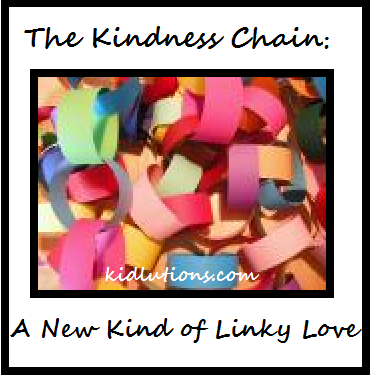The Girls' Q and A Book on Friendship by Annie Fox
 |
| You can find the book HERE! |
Anyone who parents, cares for or spends time around tween girls knows the difficulties that lurk in their friendships. Navigating these social conundrums can be quite unsettling when a tween is feeling swept away by emotions. Thank goodness there's Annie Fox to the rescue, answering some of the trickier questions girls have.
This book is incredible! I will be using it on a daily basis in my office, there is no question. The advice is solid, respectful and it's delivered in language that tween girls can understand. A girl an read the book one minute, and implement the advice the next! In the Girls' Q and A Book on Questions, Annie provides 50 ways to fix a friendship without the drama. And peace shall echo throughout the land!
I had an opportunity to ask Annie a few questions
about her new book and here's what she had to say:
1. What motivated you to write this book?
I’ve been answering tween and teen email since 1997 and peer conflict has to be the number one issue that motivates girls to write to me. It’s always been variations on the same theme “Why is my friend not acting like a friend? And what can I do about it?” I’ve written books about healthy relationships (the only kind worth having) for teens and tweens. Then I started getting calls and emails from parents and teachers of 1-4th graders. So I decides to write the Girls’ Q&A Book on Friendship for 8-12 year olds. My goal was simple: Girls friendship conflicts cause so much damage in 6th-8th grade. If I write a book for younger girls, maybe I can provide them with some valuable tools and insights so that when they reach middle school, they will be better able to navigate the waters. Hopefully I have done that.
2. When you were younger, did you experience any of these friendship conflicts you write about in your book?
Sixth grade was tough for me. My bff was “stolen” by a new girl and then the two of them turned most of the other girls in the class against me. It was confusing and very upsetting. One of the first major betrayals of my life. And yet… I survived! (As we usually do.) But that doesn’t mean I forgot the feelings. Obviously I didn’t. So maybe, in the grand scheme of things, the way I processed that situation (which pretty much lasted the entire school year) gave me needed insight for the work I do. I totally empathize with the kids who write to me for help. I have great compassion for their suffering (and they are, in many cases, truly suffering). I also understand that, as humans, our emotions often get in the way of us making our best choices– whether it is speaking up for ourselves in relationships that are not nurturing or standing up for others who are being mistreated. Or simply, managing our own emotional responses in appropriate and responsible ways so that we don’t add to the “social garbage” online and off.
3. How do you think friendship conflicts have changed through the years, if at all?
The conflicts themselves haven’t changed. The Greek dramatists as well as Shakespeare portrayed relationship conflicts at the heart of their work. Great drama has always be created from feelings of betrayal, rejection, jealousy, etc. That’s always been the stuff of tween and teen peer conflicts. So I’d have to say that the conflicts themselves haven’t changed. What has changed is the battlefield on which these emotional dramas play out. Of course I’m referring to Social Media, where people of all ages some how believe that they can post whatever they like with no impunity and no consideration to the consequences of their actions. Social media is the world’s largest unsupervised playground and without parents and teachers helping young people understand that their choices matter (online and off) kids often run amok. We need to do a better job teaching our kids how to manage their destructive emotions and to help them understand that a keyboard should not be used as a weapon… ever! Social media is not good or bad, but it is often the vortex where a child’s character development battles it out with peer approval addiction (doing whatever it takes to fit in).
4. What is the single most important piece of advice you would give girls about friendship?
In the book I included advice from older girls to younger girls (my readers) on how to be a “Super friend.” Their wisdom is spread throughout. But if I had to choose the single most important bit of advice about friendship I’d say this, “Pay attention to what you need in a friendship. When you are with a friend, notice what makes you feel happy, accepted, respected. Let your friend know what you appreciate about her and the friendship. Notice also when a friend’s behavior makes you feel uncomfortable. Talk about it with your friend and work together to make things better. We teach people how we want to be treated. When things are not going well in any relationship, we have to speak up, otherwise, the other person might assume that we don’t mind being disrespected. If that’s not the message you want to send, then be your own best friend and stand up for yourself.
Thanks, Annie! Your book is a keeper and I know it's going to help girls world wide!
Thanks, Annie! Your book is a keeper and I know it's going to help girls world wide!


.png)


%20(3).png)

Comments